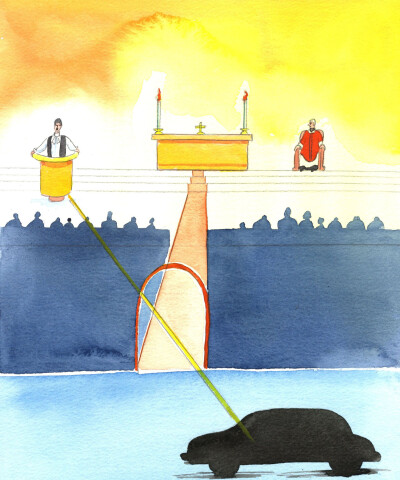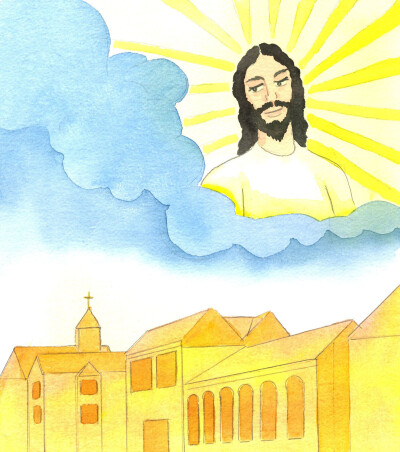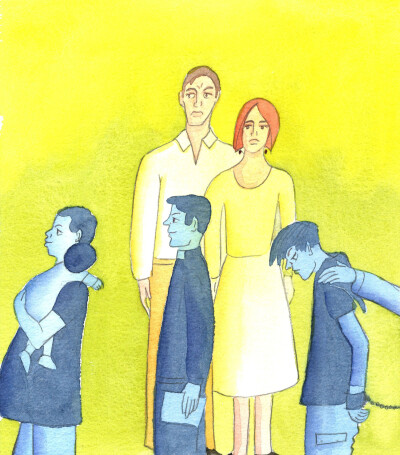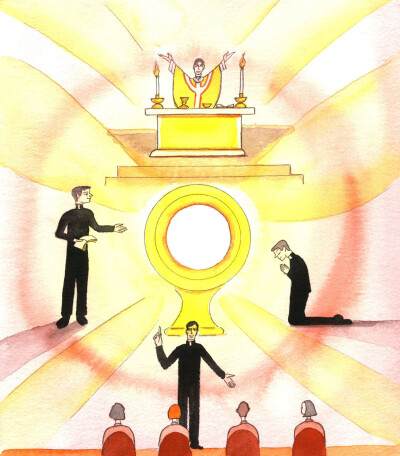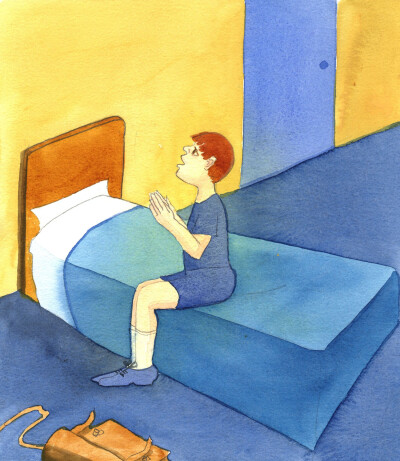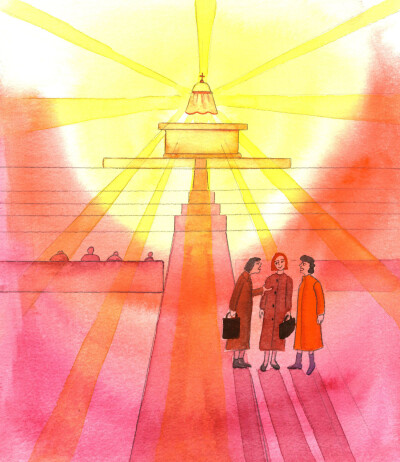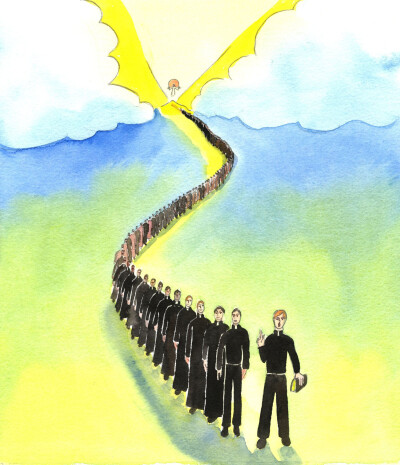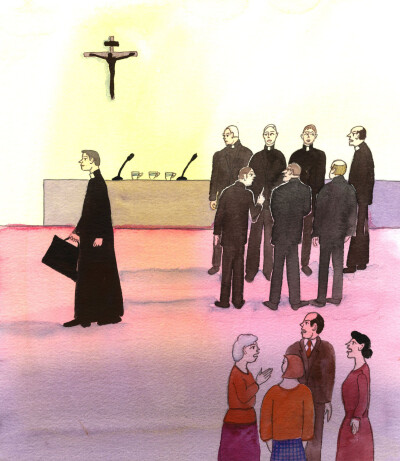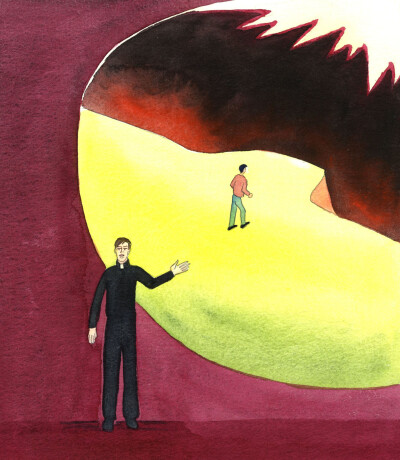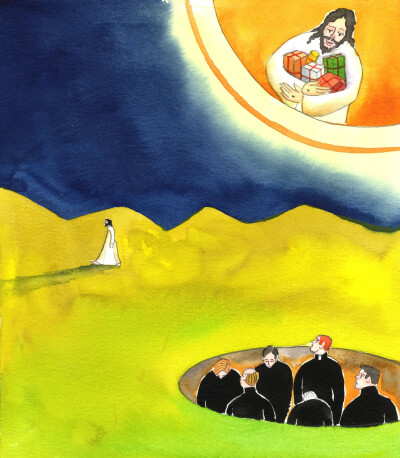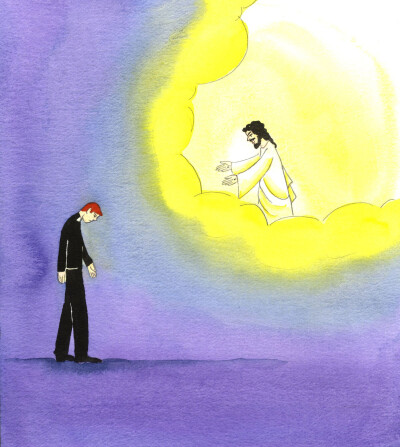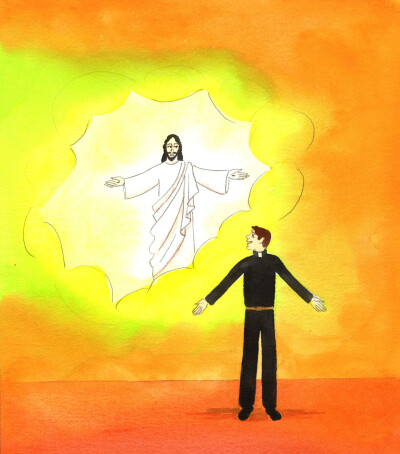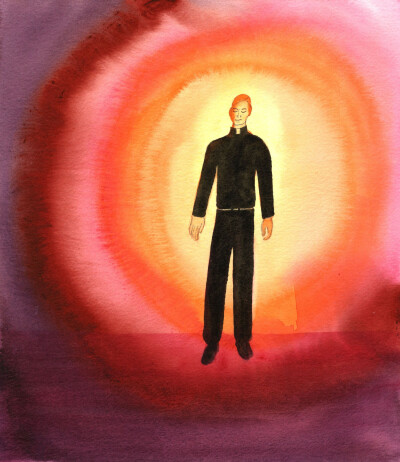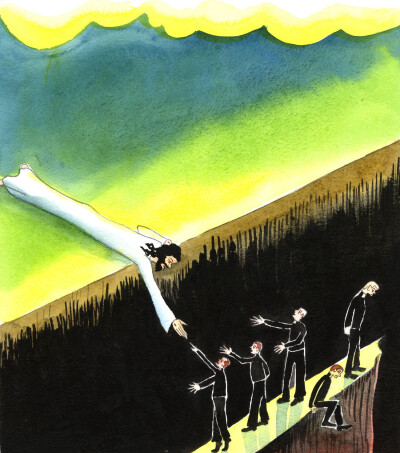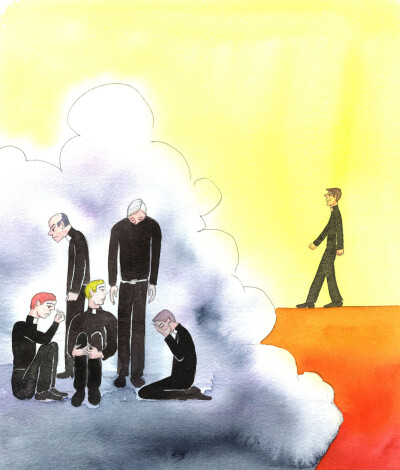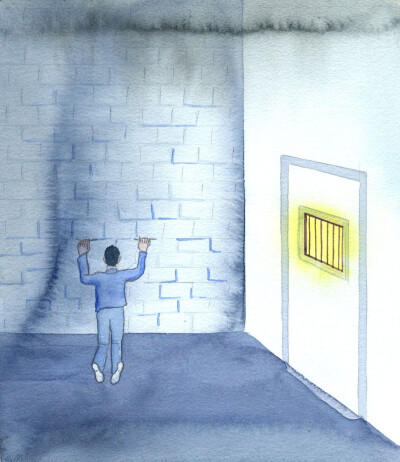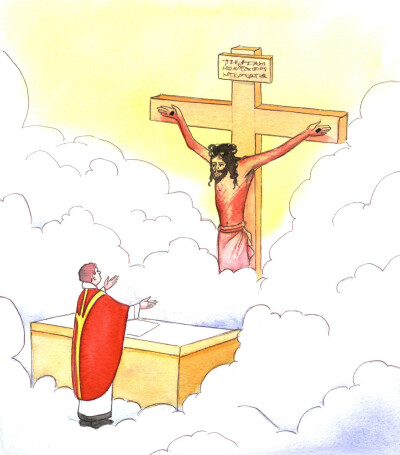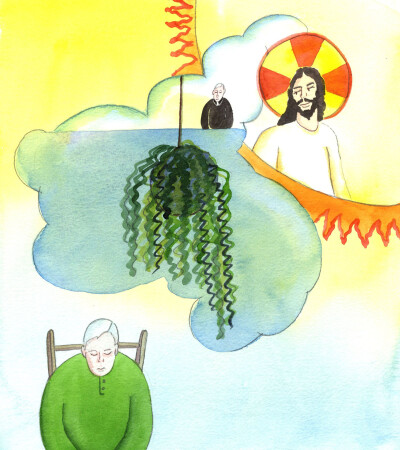Search Page
Showing 141 - 160 of 254
It is unwise for Catholic Clergy to suggest 'pulpit exchanges' with other Christian leaders. When Catholic lay-persons, quite rightly, are not allowed to preach during the Sacred Liturgy, it is hardly fitting for a Protestant to do so, who is not in full Communion with the Church and does not share all of her teachings - nor does he have valid orders.
Christ is the way, the truth and the life: the only Saviour. Christ asks every Christian teacher, author, parent, religious, Clergyman and missionary to do what St. Paul did, who urged people to be reconciled with God, through Christ, in Baptism or Confession. It is as if Christ says, in this age of hesitation or even doubt: 'Would you send people to a false god or to false prophets?' He is the Way.
Bishops or priests who have been ordained to teach the truth about Christ, about sin and virtue, and Heaven and Hell, but who refuse to believe and to teach some of the important truths of the Church about morals, are like men who break some of the rungs on the one ladder which their people must climb, to reach Heaven. By such Clergy silence, the faithful are confused, or even encouraged to continue in their sins. Those Clergy members and lay-persons risk losing Heaven, and falling into Hell.
Christ invites us to reflect on this question: How would we have treated Him, had we met Him when He was a child, or a Preacher, or a condemned criminal? Our attitude to people today in such categories is a fair indication of the stance we might have had towards Him. Do we dismiss children, including the unborn, or mock preachers, or despise criminals?
Each priest should be Eucharist-centered. The Mass and Holy Communion, and Christ's Real, sacramental Presence, should be at the heart of each priest's reflection, his words, his devotional life, and the catechesis he offers to his flock. He will arrange regular Adoration of Christ in the Blessed Sacrament.
Christ asks us to avoid all pride and vainglory. He wants everyone to know how much He loves each one of us; but He does not want priests or teachers to encourage children to start the day by saying: "I am great, I am wonderful, I am proud of being me!" He asks us to aim for humility, rather than concentrating on self-esteem.
Christ wanted to make His Catholic church buildings into 'little Heavens' on earth, where people could offer prayer, in peace, in His Presence, before the Holy Eucharist, with the Angels. When there is constant chatter, this defeats His purpose. The Clergy, above all, should encourage people in church to behave with a reverent silence.
Since Christ ascended to Heaven, having asked His disciples to hand on His message, the Clergy have taught the truth all over the world, instructing people, handing on the Deposit of faith; so it is a disastrous aberration, when an individual priest choses to hand on a distorted Faith, or waters it down, or omits what is important to make it more palatable to sinners who want to continue in their sins. Language changes, but not truth. There is no room for 'creativity' in dogma, or in Liturgy.
What we believe affects how we behave, in life; so it is tragic that there is a current mind-set within certain groups of priests, Bishops and Catechists, which makes a thoroughly orthodox Catholic priest into an object of dislike and suspicion. It's as if a person who believes all that the Church teaches, and encourages others to teach it and practice it must necessarily be 'rigid, lacking in compassion', whereas those who criticise him usually offer a distorted, truncated, or watered down version of the Faith.
We should all be aware that actions have consequences. Everyone deserves to be reminded of these truths: Life ends. There is either Heaven or Hell, in the end, for each of us. That is what every priest and Bishop should say, when he is asked to speak about salvation - even to children. Like adults, children who have reached the age of reason should be encouraged to recognise right and wrong actions, and to form their consciences in accordance with the teaching of the Church.
God looks down from Heaven, ready to distribute lavish gifts upon us, yet sees many dispirited priests who are too afraid to teach the Faith in its fullness; thus they are unwilling to imitate their Saviour and risk criticism from those they teach; and so they omit to mention the wrongness of adultery, contraceptive use, desertion of spouses, and neglect of children by mothers, and much more. In failing to rescue people from sin they fail in their duty, as if hiding away in a pit, hoping to be unnoticed.
Many of the Clergy preach a truncated Faith. There is little preaching today on important issues of sexual morality: sins which are common-place, such as adultery, pre-marital sex, contraceptive use and much more. In Christ's sight, a Bishop who does not teach the Faith in its fullness and lead people away from sin and hopelessness is still a beloved 'child', but is as useless as a shopkeeper who refuses to sell things.
It is not the Will of Christ that priests keep their thoughts almost exclusively upon earthly matters, even though they work amongst people in the world who are beset by dreadful trisls. The ultimate aim of priests should be to give glory to God, and to bring themselves and other people towards holiness and Heaven, doing so by the priest's union with and imitation of Christ.
A priest fulfils the Will of Christ, and becomes joyful, when he has begun to accept the Cross, in being conformed to Christ in a sinful world. By his union with Christ, and His imitation of Christ, he can be freed to do what he is called to do, which is not primarily to help people with their earthly cares, but above all to bring them and himself towards holiness and salvation, and thereby to play his part in God's plan of salvation.
This is the ideal, for a priest: to be totally conformed to Christ - and for lay-persons too, who want to do the Will of God. Whoever conforms his will to the Will of Christ, and believes and practices the teachings of the Church, for love of Christ, and has a pure heart, avoids all sin, and shares the Faith where he can, and loves his neighbour, is a channel for God's powerful graces to others, even if he or she has weaknesses and imperfections from character defects, or poor upbringing.
Those priests who have grievously sinned, or have become dispirited and somewhat hopeless, are not abandoned by Christ. Some might be in danger of falling into Hell, in the depths of the Abyss; but Christ is reaching out to them. If they reach up to Him in repentance and trust, before they die, they can find salvation and even joy and peace of soul.
It is true that many priests deserve more rest; however, some priests are as if hiding away, uncommunicative, loathing ordinary life and interaction. Whether this is because of sin or hopelessness, there is no way to find change, and lasting joy, except through a renewal of their dedication to Christ, Who called them to the Priesthood. With sincere trust in Him, they can fulfil their basic duties and persevere in prayer.
There is no easy way out of trouble. If a priest is very sinful, or dispirited and hopeless, and wants to escape from his misery, the only sensible way is by turning to Christ, beginning again to trust in Him, to repent, to pray, and to receive His gifts, for the service of God and neighbour, just as the only sensible way for a man in prison to act is to act well, until the door opens to freedom rather that try to dig a tunnel with bare hands through a brick wall.
Christ invites each priest to renew his trust in Him. Even when a priest approaches the altar with heavy footsteps and a leaden heart, and feels so lacking in love or fervour that it's as if he is offering the Holy Sacrifice in a frozen waste, surrounded by snow drifts and icy winds, Christ never fails to come to the altar at the Consecration, as if leaning down from the Cross to say to the priest: Yes, I am here! I love you. You are doing My work, offering My Sacrifice. Persevere, and you will become joyful.
It is dangerous to succumb to spiritual stagnation when a priest or other person goes on prolonged leave, or a lengthy sabbatical, but for far too long, with little relish for prayer, and becoming weighed down with discontent; then it is time for him to look carefully at his relationship to God. Just as a buoy, left under the surface of the sea, becomes encrusted with shellfish and festooned with seaweed, becoming almost unrecognisable, so there is a danger of losing interest in a vocation, or becoming graceless and hopeless, unless changes are made.
Showing 141 - 160 of 254

